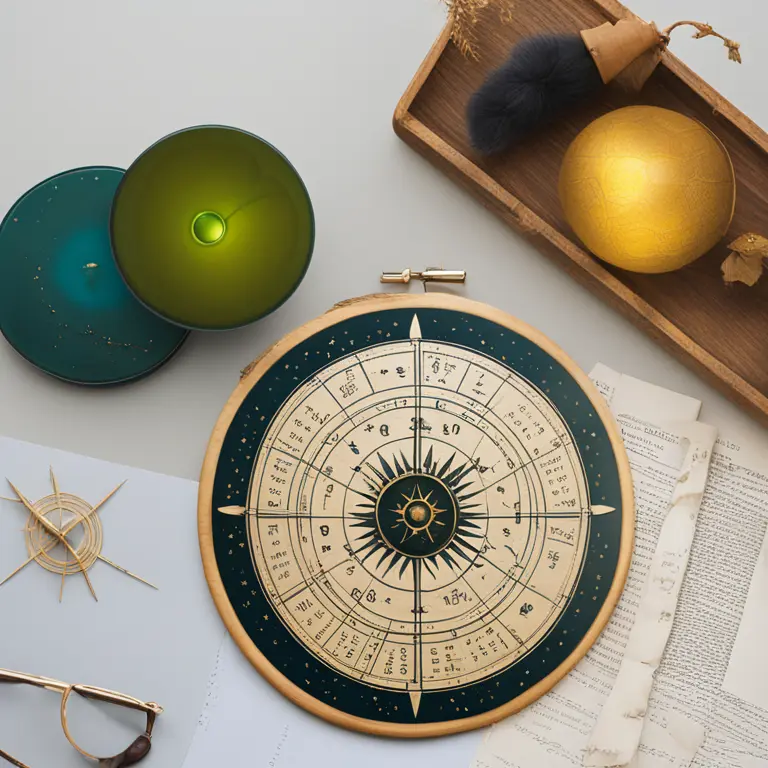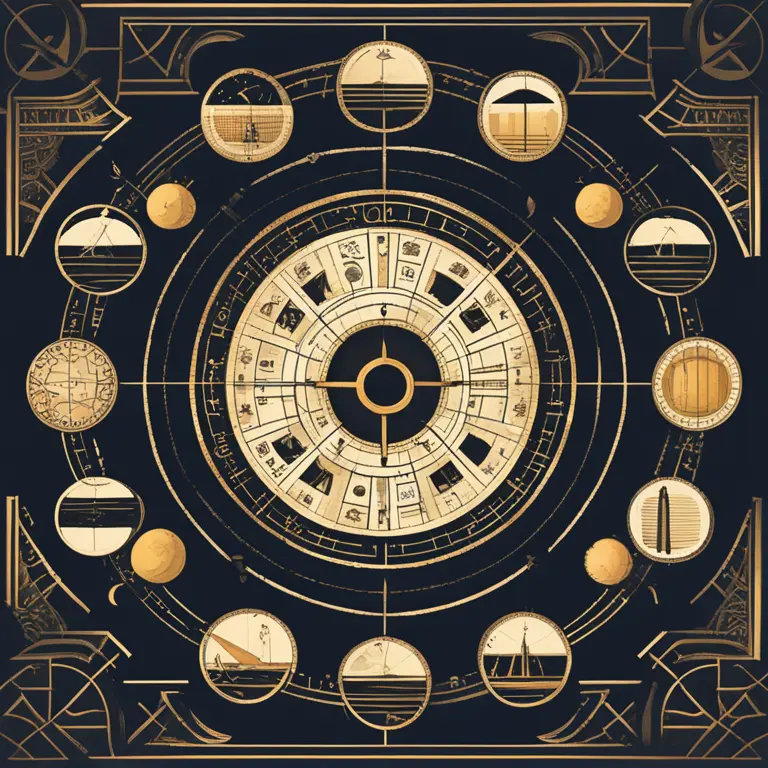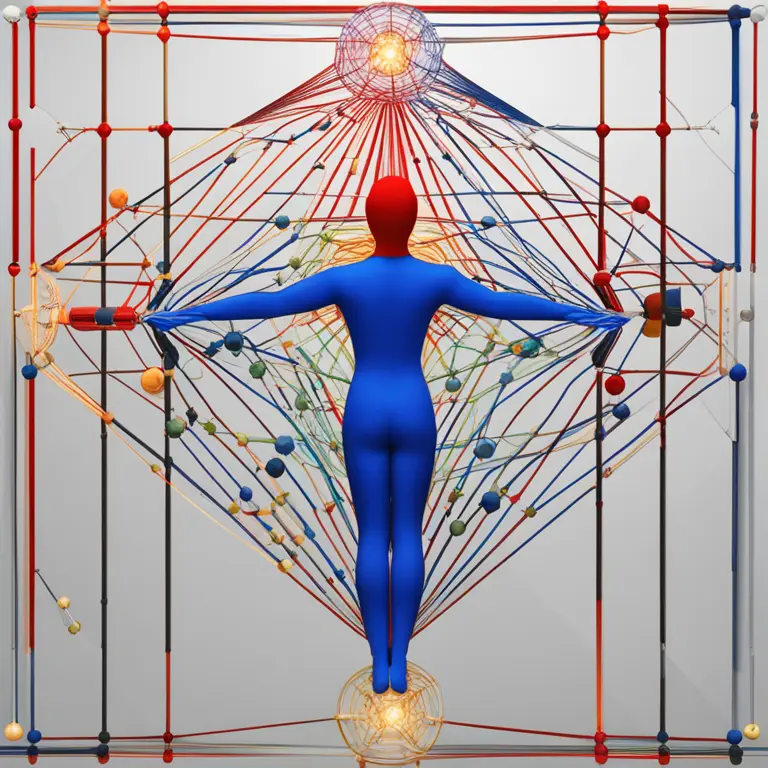
Astrology: Merging Mysticism with Method
Investigating astrology as a science, this article delves into its systematic approaches and correlation with empirical phenomena.
article by Priya Deshmukh
Astrology Beyond Superstition
For centuries, humans have looked to the stars for guidance, seeking to understand the celestial influence on personality, fate, and earthly events. Astrology, often dismissed as a pseudoscience, embodies intricate systems that demand closer scrutiny. With roots in ancient traditions, it evolved alongside astronomy until the Enlightenment encouraged their departure. Now, as we reconsider knowledge frameworks, astrology's methodologies reveal a structured approach to human experience, inviting debate on its scientific merits. This article examines astrology's potential as a disciplined study, considering its historical context, systematic nature, and the growing interest in astrological research.

The Historical Evolution of Astrology
Astrology's fusion with scientific endeavor dates back to Mesopotamia and ancient Greece, where it was integral to early astronomical studies. Esteemed scholars like Ptolemy contributed to astrology's legitimacy through works that are still referenced today. In those times, no line was drawn between the celestial mechanics and their supposed effects. The Renaissance period saw astrology thriving under academic patronage but eventually gave way to a purely materialistic worldview shaped by Newtonian physics. Yet, astrology's historical association with empirical observation suggests potential for scientific inquiry — a perspective gaining traction in a world exploring diverse forms of knowledge.

Systems and Structures
Critics often ignore astrology's systematic nature; it operates on intricate mechanisms much like any scientific practice. Astrologers employ precise calculations involving planetary positions, angles, and aspects, creating detailed birth charts that resemble data-rich maps. Far from arbitrary, these techniques obey internal logic and consistency. While interpretation introduces subjectivity, so does hypothesis formation in conventional science. Astrology’s framework invites standardization and repeatability — essential aspects of the scientific method that warrant exploration with today's inclination towards integration of various wisdom traditions.

Empirical Correlations and Studies
Recent years have seen a surge in data analytics and computational resources, enabling quantifiable analyses of astrological claims. While astrology does not fit the mold of conventional causality, numerous studies attempt to correlate astrological aspects with personality traits, career choices, and even medical predispositions. The Gauquelin studies of the mid-20th century, for example, found statistical correlations between planetary positions and professional success, provoking debate and further research. As we develop sophisticated methodologies, astrology can be rigorously tested, enhancing its potential recognition as a science.
Psychology Meets Astrology
The fields of psychology and astrology exhibit intriguing intersections. Carl Jung, the Swiss psychiatrist, acknowledged the value of astrology in understanding the psyche—an endorsement prompting serious consideration. Modern psychological astrology investigates archetypal symbolism and synchronicities, presenting a qualitative research dimension. These areas, where empirical measures fade, open discussions about the nature of consciousness and reality — domains not yet fully explained by science. Astrology's psychological applications could illuminate individual and collective experiences that are otherwise dismissed by stringent empirical criteria.
Technology’s Role in Astrological Advances
As technology advances, so does the scope for astrology's scientific development. AI-powered astrological applications analyze vast datasets, discerning patterns with enhanced precision. Public databases and mobile apps bringing personalized readings have democratized and revitalized interest in astrology, encouraging scientific curiosity. As we stand at the crossroads between digital innovation and ancient wisdom, astrology benefits from a synthesis of both, potentially paving the way for a new era of acceptance and understanding within scientific paradigms.
Conclusion: The Future of Astrological Science
Astrology as a science remains a contested notion, yet it persists in aligning itself with structured practice and empirical exploration. Its future as a discipline lies in the balance of tradition with innovation and in acknowledging the need for scientific rigor alongside recognition of subjective, experiential realities. Only by embracing the broader conception of what science is and can be, will the true potential of astrology be unearthed — not as a mere artifact of mysticism but as a system of nuanced interpretation and understanding of human existence within the cosmos.
Published: 2/13/2024
Modified: 2/13/2024
More predictions
Come back here soon to learn more about yourself and your future


The Tarot Queen of Pentacles: A Rich Symbolism
Delve into the symbolism and meanings of the Tarot Queen of Pentacles to enhance your readings and personal insights.


The Tarot's Queen of Pentacles: A Guide to Practical Wisdom
Delve into the significance of the Tarot's Queen of Pentacles and discover how this card symbolizes nurturing abundance and material mastery in readings.


Crafting Inquiry: Top Tarot Questions to Ask
Discover the right questions to pose during a tarot reading to gain profound insights into your life's direction and decisions.